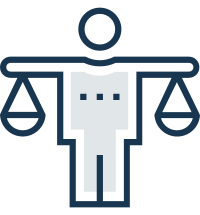
the codes of practice
📄 TERMS
Full Members shall agree to the following terms of the codes of practice:
- The Codes of Practice apply individually to each Service Facility listed with the AEMT.
- Service Facilities belonging to New Members and Current Members who fall short of the requirements shall have an agreed timescale of no more than 12 months to adhere to the Codes of Practice, and shall demonstrate active engagement in the process.
- Service Facilities will be classified as either Working Towards, Compliant, or Verified.
- Working Towards: A Service Facility that is not yet Compliant but is actively working towards meeting the standards.
- Compliant: The Service Facility has demonstrated compliance with the requirements of the Codes of Practice.
- Verified: The Service Facility has opted to receive further onsite verification and demonstrates full compliance with the requirements.
- The AEMT will conduct random visits to at least 5% of Compliant Service Facilities annually to perform spot checks.
- Compliant Service Facilities shall agree to a visit from the AEMT within a 1 month window. Persistently delaying beyond a one month window will result in a review over continued membership.
- Verified Service Facilities shall renew their status every 3 years.
✅ QUALITY
- The Service Facility shall maintain access to a copy of the ISO 9001 standard in their library. The Service Facility shall use the principles of ISO 9001 standard to develop and maintain their own internal quality management system (QMS).
- The Service Facility shall maintain access to a copy of the latest IEC 60034-23 Repair, Overhaul and Reclamation of Rotating Electrical Equipment standard in their library and have its procedures embedded into their QMS.
- Where a Service Facility works on motors, they shall maintain access to a copy of the AEMT/EASA Good Practice Guide to Maintain Motor Efficiency in their library and ensure that their QMS reflects the principles of this guide.
🛠️ EXPERTISE
- In-house Service Facility capabilities shall be confidentially listed with the AEMT including, but not limited to: Lifting Capacity, Shopfloor Equipment, and Testing Capability. [These shall be checked against the service facilities public profile on theaemt.com]
- The Service Facility shall have a skills and training matrix embedded as part of their QMS
- The Service Facility shall use an appropriate apprenticeship standard and demonstrate a commitment to the transfer of knowledge and upskilling within the workforce.
🤝 INTEGRITY
- The Service Facility shall agree to the AEMT Integrity Policy.
- The Service Facility shall establish the following policies and procedures.
- The Service Facility shall have a Wellbeing Policy demonstrating a commitment to the mental health and wellbeing of staff.
- The Service Facility shall have a Supplier Policy on ethical and sustainable procurement, providing independent verification where possible.
- Members are expected to report any activities that contradict the policy through the AEMT complaints procedure detailed here.
♻️ SUSTAINABILITY
- The Service Facility shall have an Environmental Policy and procedures in place demonstrating a commitment to the environment and sustainability.
- The Service Facility shall comply with all applicable local environmental regulations .
⚓ STABILITY
- Business ownership to have a good track record [Documentation detailing how the AEMT will determine a good business ownership track records is available here]
- New Members to have filed satisfactory accounts for a minimum of one year of trading.
🦺 SAFETY
- The Service Facility shall have a Safety Policy and procedures in place demonstrating a commitment to the health and safety of their staff and all onsite visitors.
- The Service Facility shall comply with all applicable local safety regulations.
Members are therefore expected to conform strictly to the following requirements:
- A member shall be financially responsible and shall be able to complete properly, and make good their guarantee on, any job undertaken.
- A member shall adhere to their own standards or guarantees which must be reasonable.
- A member shall not misrepresent theirbusiness, services or products by inaccurate advertising or otherwise.
- A member shall show due consideration for other members and for their ability. They shall not attempt to harm another's business through misrepresentation or any other improper means which could cause loss of goodwill, reputation or employees.
- A member shall adequately provide for the welfare of their employees and shall carry all such insurance as may be necessary for the proper protection of their employees and the public.
- A member shall co-operate with fellow members to the best of their ability in sound and lawful projects intended to improve the quality of the industry's service in the general interest.
- A member shall not take any action which may bring into disrepute the Association or its members.
- A member shall not collude with others in a manner that would limit open competition, gain unfair competitive advantages, or undermine the integrity of the association. (Added June 2021)
When an AEMT member believes he has been harmed by another member who has compromised the intent or spirit of the Association's Code of Business Practice, or adopted conduct contrary to the best interests of the Association, he may file a complaint with the AEMT Complaints Committee in accordance with the following procedure:
- Advise the Association Secretary, in writing, of the alleged complaint and request the Committee's assistance in resolving the dispute.
- The Committee will require the complainant to complete and sign a complaint form detailing the circumstances of the alleged complaint.
- The Committee will review the complaint and forward a copy to the other party who will be requested to complete and sign a similar document which will be forwarded to the complainant.
- On completion of forms by both members they will be reviewed by the Committee. The Committee will attempt to mediate an amicable resolution to the dispute.
- If this fails the complainant may request a hearing before the Committee. This is to be done in a registered letter to the Association Secretary.
- Should the Committee consider the alleged complaint and supporting evidence are sufficient to warrant a hearing, one will be arranged. The timing and location of any such meeting will be determined by the Committee. Both parties to the complaint will be given the opportunity to attend and be heard at such a meeting.
- Based on this hearing, the committee will determine the appropriate action which will be notified to Council. Should the parties not be in agreement with the ruling of the Committee each has the right, within a period of fourteen days, for the matter to be referred to Council for determination.
- Should the dispute be referred to Council for determination both parties will be given the opportunity to attend and be heard.
- The Committee may recommend that Members be censured, suspended or expelled from membership. Such recommendations will be brought before the Council, reviewed and voted upon. A two thirds vote of the Council will be required to implement any recommendations.
- The Complaints Committee will comprise of three Past Presidents, the Immediate Past President as Chair, or as determined by Council.
- The Association Secretary will attend all meetings of the Committee.






